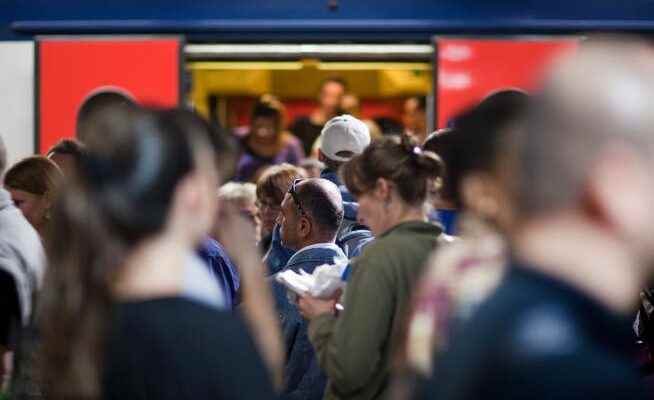The increase in home office employment is also changing tax policy. On Wednesday, the Federal Council submitted a reform of the deduction for professional expenses for consultation. A core motive is the equal treatment of company work and home work.
The Federal Council wants to change the tax deduction for commuter costs and other professional expenses.
Tax deductions are popular. For the taxpayer, deductions provide the only joy in completing the tax return. And for politicians, tax deductions are a good way of giving advantages to their own clientele while at the same time concealing the costs.
The cost of tax deductions is significant. A federal report had already calculated in the 1990s that the federal government could almost halve the tax rates if all deductions were eliminated without losing income on balance. Since then, the importance of deductions is likely to have increased. According to a golden rule of tax policy, there should be as few deductions as possible and the lowest possible tax rates.
Low tax rates limit the dampening of work incentives and evasive manoeuvres. Tax deductions, on the other hand, encourage evasive maneuvers and thus cause economic distortions. That sounds abstract, but it is real. A textbook example: the tax deduction for tied retirement savings in Pillar 3a actually corresponds to a subsidy for the financial sector; because of the tax deduction, savers make money available to the banks at lower interest rates than they would otherwise.
Subsidizing commuting
After all, there are deductions that make sense from the point of view of the control logic. This applies in particular to deductions for costs that are directly linked to the generation of taxable income (profit costs). The classic are professional expenses. But even the deductions for professional expenses contain something questionable. For example, the deduction for the cost of travel between home and work corresponds to a subsidy for commuting. The commuting costs are not purely acquisition costs, because they also depend on the choice of residence. Flat-rate deductions for additional costs for external meals also appear questionable: You don’t have to eat in a restaurant every lunchtime, but can eat out as cheaply as at home.
In addition, paid work in home offices has increased significantly. This started long before Corona, but the pandemic has significantly amplified this trend. According to the federal government, in 2021 around 40 percent of the workforce had at least occasionally worked in the home office. Many of those affected have acquired a taste for it and will probably continue to work at least partly from home in the future.
As neutral and simple as possible
One Motion of 2020 from Parliament on “Tax equality for telework” was rejected, but the discussions on the home office inspired the Federal Council to review the tax deduction for professional expenses. The stated goals of a conversion of the deduction: The deduction should be as neutral as possible in relation to various forms of work, it should bring about simplification, and a reform should, on balance, cause neither additional nor reduced income.
On Wednesday, the Federal Council based on recommendations be part of a working group reform proposal sent for consultation. There is currently a deduction for commuter costs (maximum CHF 3,000 per year) in the direct federal tax, a flat-rate deduction for additional costs for external meals and a deduction for other professional expenses (either as a flat rate or for actual expenses). Employees should now be able to claim a lump sum for all professional expenses.
The Department of Finance is to anchor the amount of the lump sum in the implementing regulation. According to the Federal Council, the amount should be set in such a way that the reform is revenue-neutral for the federal government. The preliminary finding based on data from three cantons: the flat-rate deduction could be around 5,800 francs. According to federal information, the definitive lump sum will be decided relatively shortly before it comes into force; by then, a broader data set should be available. The cantons are also given the option of an overall flat rate; the amount would be determined by the cantons.
With the lump sum for professional expenses, mobile working or working in a home office would be treated in a tax-neutral way compared to working in the company, emphasizes the Federal Council. This increases economic efficiency. The second main advantage mentioned: the reform simplifies taxation for those liable and for the authorities.
The other side of the coin
As is often the case, there are conflicting goals here. Naturally, flat-rate deductions restrict the principle of taxation based on economic ability. This is not a problem with professional expenses insofar as these costs arise from the choice of their own lifestyle (choice of place of residence and the extent of home work). In practice, there is often a mixture of free choice and practical constraints.
Many taxpayers are likely to use the proposed flat rate. But it should also remain possible to claim effective professional expenses instead of this flat rate. This alternative has the following elements: As before, a maximum is planned for commuter costs (CHF 3,200 for 2023); a flat rate should continue to apply for external catering; In addition, a tax deduction is expressly provided for costs necessary for exercising a profession outside of the company.
The alternative of tax deduction based on actual expenses alleviates the potential problem of disadvantages for employees with high professional costs. At the same time, however, this limits the advantages of the overall flat rate. According to the Federal Tax Administration, taxpayers should be able to choose between the flat rate and the deduction based on the actual costs each year.
